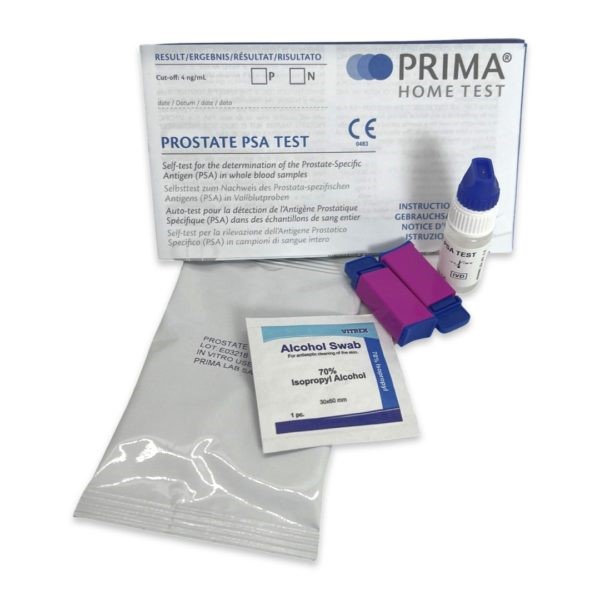PSA Prostate test
6/22/20232 min read
What is the PSA Test?
The prostate-specific antigen (PSA) test is a blood test that measures the level of PSA in your blood. PSA is a protein produced by the prostate gland, which is a small gland in men that helps produce semen.
A PSA test can be used to screen for prostate cancer, but it is not a perfect test. A raised PSA level can be a sign of prostate cancer, but it can also be caused by other conditions, such as an enlarged prostate or prostatitis.
Who Should Get a PSA Test?
The American Urological Association (AUA) recommends that men start getting PSA tests at age 50. Men over the age of 45 can have a higher risk of prostate cancer, and those who are pre disposed such as those with a family history of the disease, may need to start getting tested at an earlier age.
How is the PSA Test Done?
The PSA test is a simple blood test that can be done at home using our PSA test kit. The blood sample is obtained using a lancet which is supplied in the kit.
What are the Results of the PSA Test?
The results of the PSA test are usually reported in nanograms per milliliter (ng/mL). A normal PSA level is considered to be below 4 ng/mL. A PSA level of 4-10 ng/mL is considered to be borderline, and a PSA level of 10 ng/mL or higher is considered to be high.
What Do High PSA Levels Mean?
A high PSA level does not necessarily mean that you have prostate cancer. However, it is a sign that you may have a problem with your prostate. If you have a high PSA level, your doctor may recommend further tests, such as a digital rectal exam (DRE) or a prostate biopsy.
What is a Digital Rectal Exam (DRE)?
A DRE is a physical exam that your doctor uses to feel your prostate for any abnormalities. The exam is done by inserting a lubricated, gloved finger into your rectum.
What is a Prostate Biopsy?
A prostate biopsy is a procedure that removes small samples of tissue from your prostate gland. The samples are then sent to a laboratory to be examined for cancer cells.
What are the Treatment Options for Prostate Cancer?
The treatment for prostate cancer depends on the stage of the cancer and the patient's overall health. Treatment options may include surgery, radiation therapy, or hormone therapy.
Conclusion
The PSA test is a useful tool for screening for prostate cancer. However, it is important to remember that the test is not perfect and that a high PSA level does not necessarily mean that you have prostate cancer. If you have any concerns about your PSA level, talk to your doctor.
Subscribe to our newsletter
SeraDiag, 128 City Road, London, EC1V 2NX


